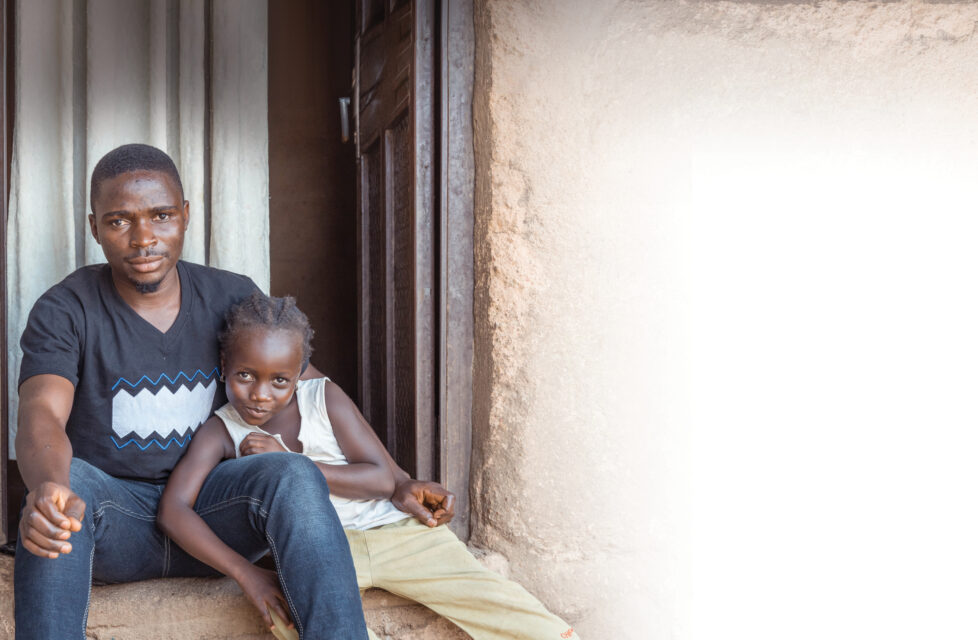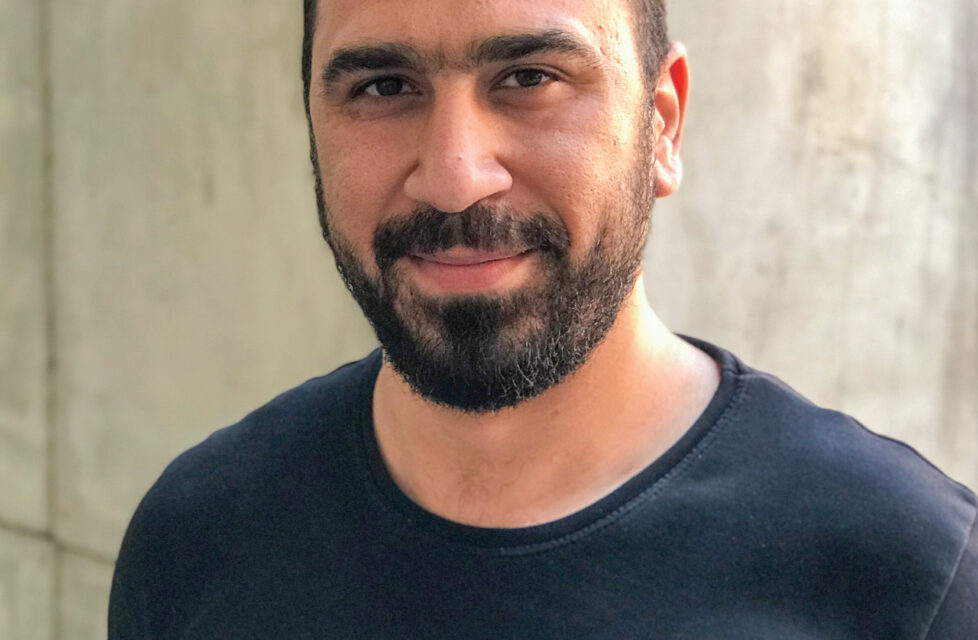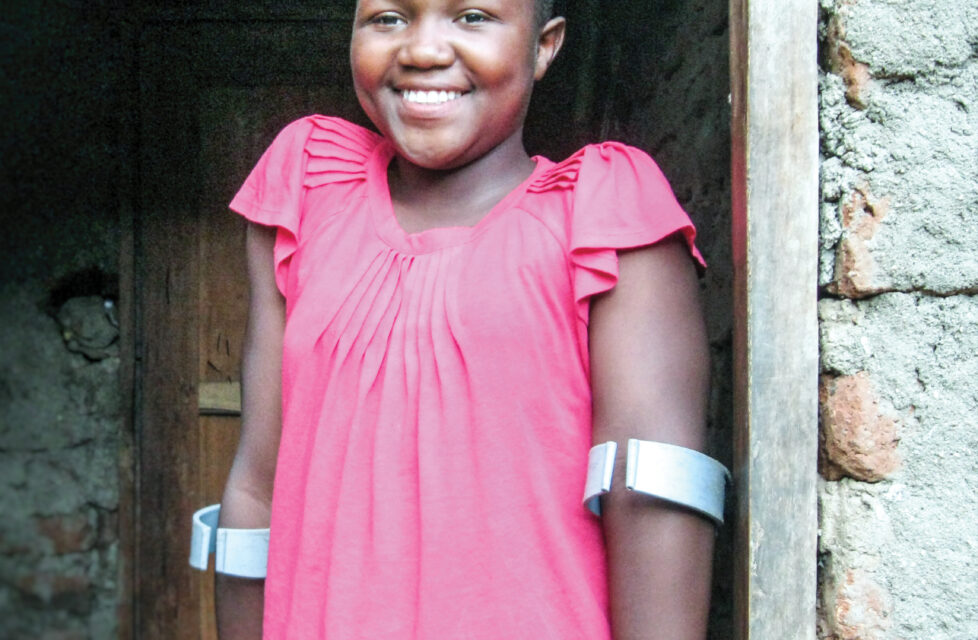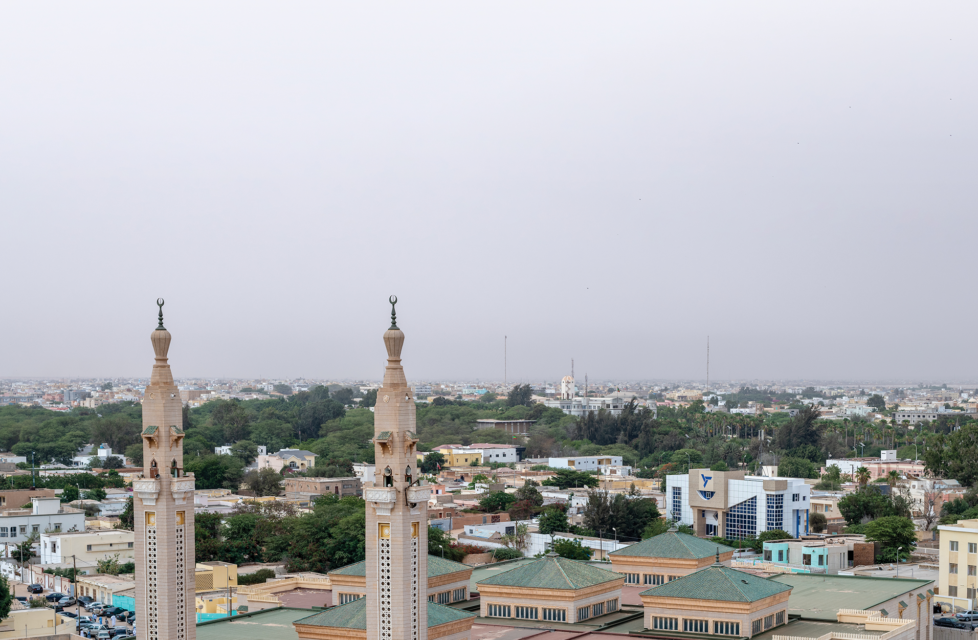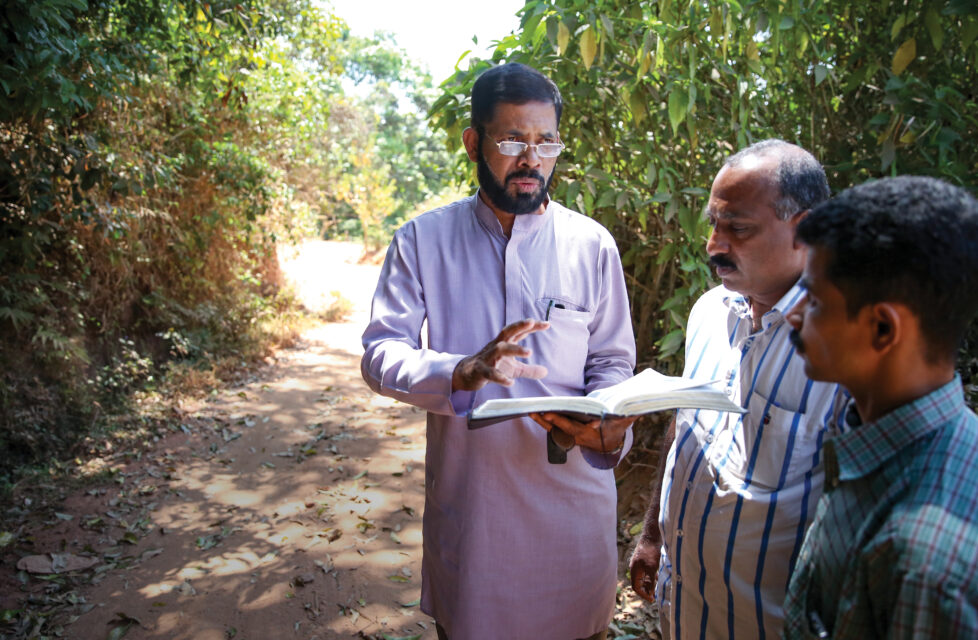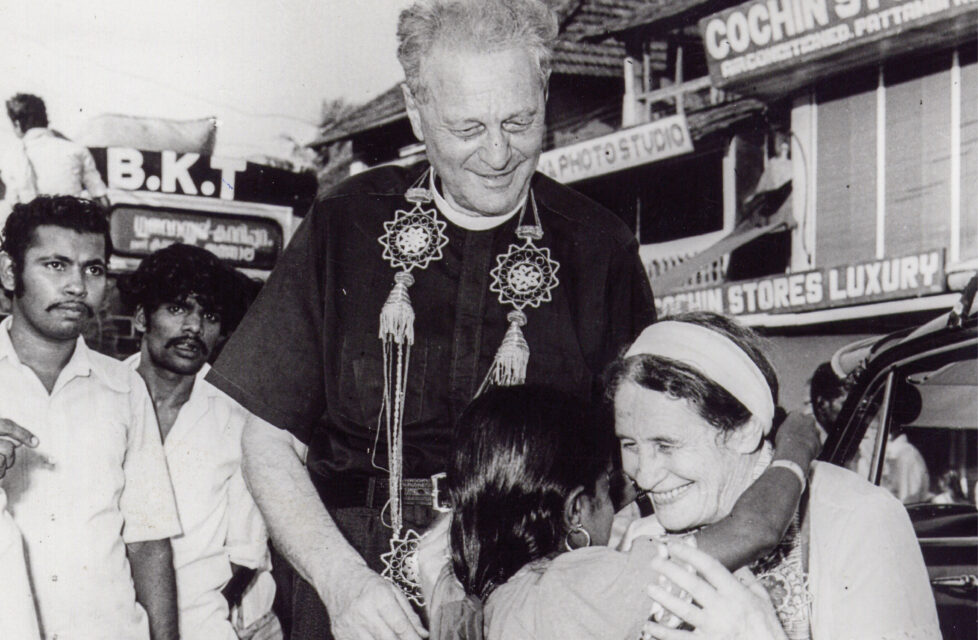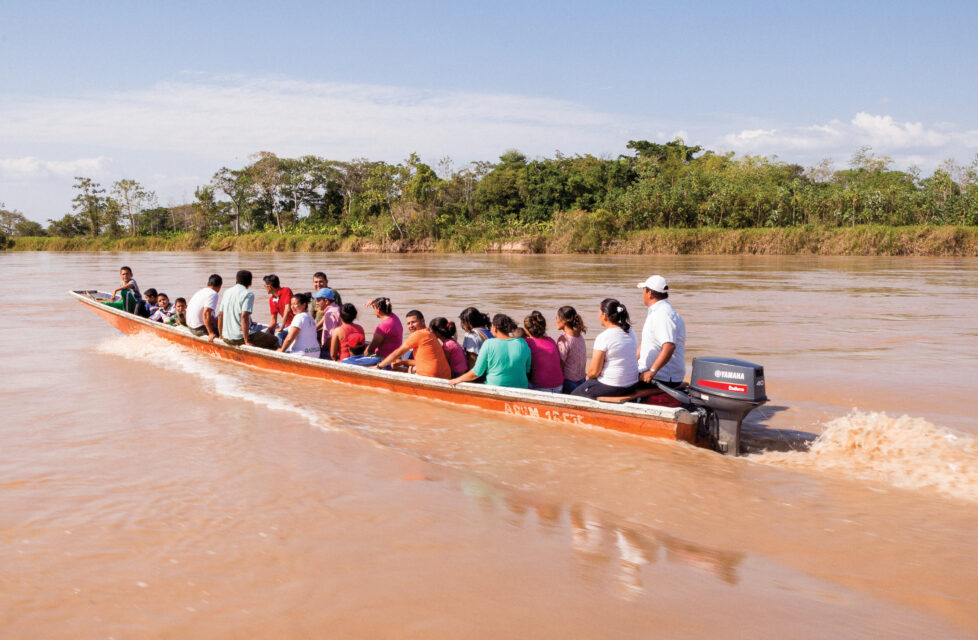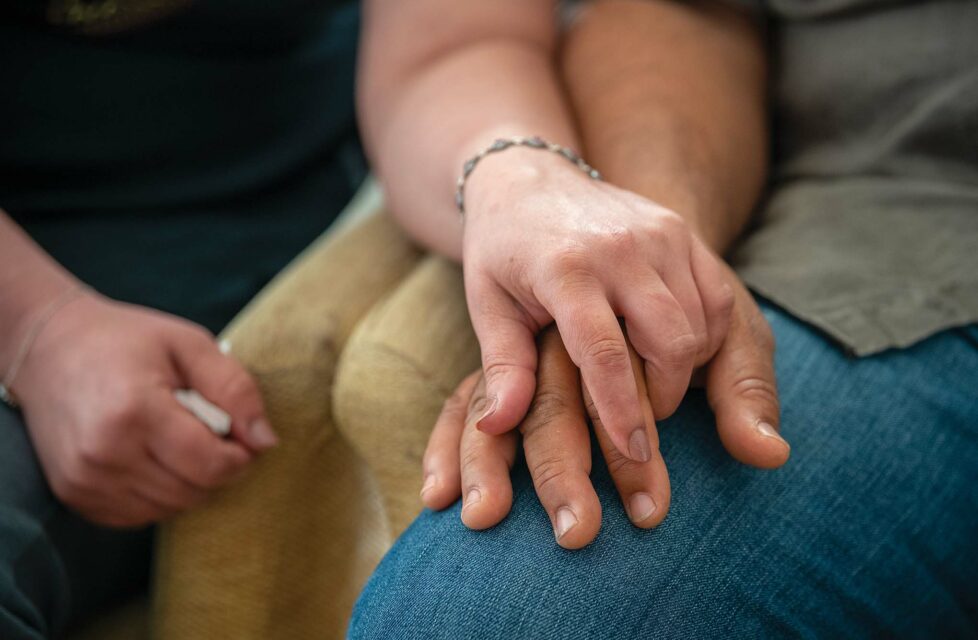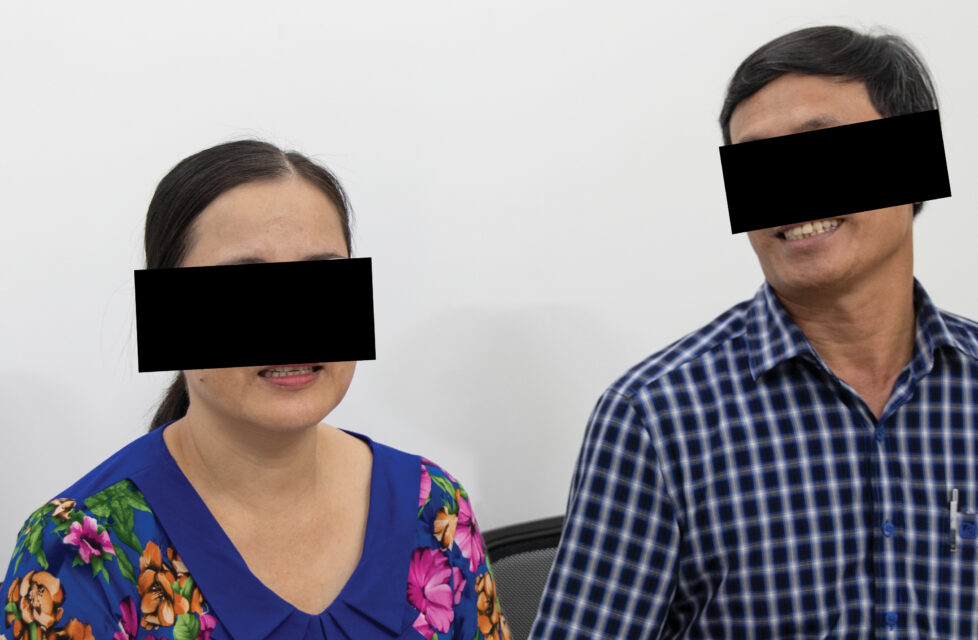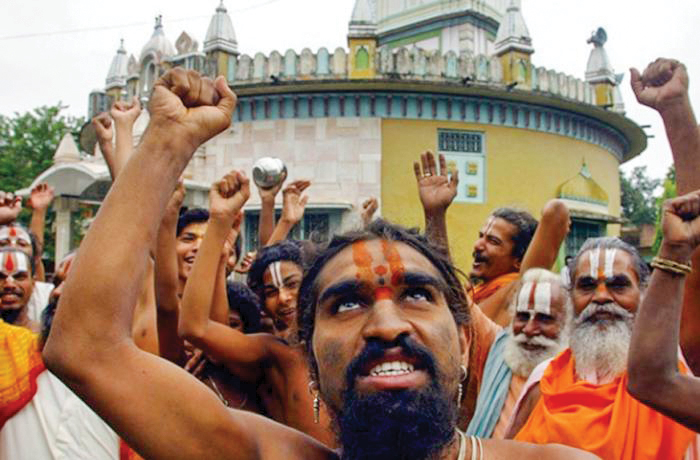Weeks before his wife’s death, James had a casual discussion with her about whether either of them would remarry if the other died. James told her he wanted to die first so their two daughters would have a mother to care for them, and his wife, Mary, teased him by saying she would remarry. But then she grew more serious, telling him she had a sense that she would die first. James didn’t think much of the conversation until later, when Mary was killed in an attack on their Christian village in central Nigeria. James was in the city donating blood at a hospital on the day of the attack. When he called home around noon, Mary told him not to come home because they had heard gunshots in a nearby community and she wanted him to avoid traveling through an area of conflict. She was not yet aware that Fulani Islamic militants were attacking the entire region of Barkin Ladi, outside Jos. Beginning at 7 a.m. that Saturday, June 23, 2018, the heavily armed militants swept through the area, using plastic garden sprayers to spray gasoline on houses before setting them ablaze. Mary called James back a little later,
Read MoreAbdu Oganesyan and his father were determined to keep their workshop open, despite the civil war that was destroying their Syrian homeland. Abdu’s mother, sister and two younger brothers had moved to a larger city for safety when the war broke out in 2011, but he and his father had stayed behind to continue managing the shop. They were also concerned about protecting the land that had been in their family since 1920, when their ancestors had fled the Armenian genocide in Turkey and immigrated to Syria. When clashes between the Free Syrian Army, al-Nusra Front, Islamic Front and self-proclaimed Islamic State (ISIS) would erupt in their neighborhood, Abdu and his father would hunker down and try to avoid getting caught in the crossfire. Still, they fully expected to keep the shop open until the fighting was over. On June 1, 2014, however, their plans for the future were shattered when members of the Islamic Front, composed of foreigners from Iraq and Turkey, surrounded Abdu and a Muslim employee on the street in front of their shop. Kidnapped by Muslim Extremists The Islamists allowed the Muslim employee to leave, but they slid a black bag over Abdu’s head, held a
Read MoreThe thin, 13-year-old girl shifted painfully in the dark, trying to remember how long she had been locked up. Although she wasn’t exactly sure, she knew it had been months. Her stomach rumbled with hunger, and she hoped that her brother might soon slip another roasted banana under the door. Her father hadn’t fed her since locking her in the cramped space. Soon after Susan Ithungu came to know Christ in 2009, her Muslim father began to beat her, once even threatening to kill her with a knife. After trying for months to persuade Susan to deny Christ, he finally locked her in a small space in their mud shanty. Six months passed before neighbors realized what was happening to Susan and notified the police, who rescued her and took her to a hospital. A pastor who visited her immediately after her rescue said she was extremely thin and unable to walk or talk. “Her hair had turned yellow, she had long fingernails and sunken eyes, and she looked very slim, less than 45 pounds,” he said. Abused and Rejected Sadly, Susan’s story is not unique in Uganda. While 85 percent of the country’s population is Christian, those who convert
Read MoreFor Fawzy, police interrogations have become such a common part of his ministry work that he hardly notices them. As an evangelist and church planter in North Africa, he spends his time meeting with new Christian converts and others interested in learning more about Jesus. But his activities are viewed as a threat by Islamic leaders and government officials afraid of civil unrest. His first visit with government authorities was in the late 1980s, just three months after he had become a believer. After police arrested Fawzy, then 17, at his home, they took him to the police station and interrogated him for more than six hours, asking him if he had become a Christian. Although frightened, his faith held strong. “l felt like there was a power or a hope in my heart,” Fawzy said. He boldly told the police that he had left Islam for Christianity after studying the Bible through a correspondence course. Three months later, the authorities returned for another lengthy interrogation, telling Fawzy the only reason they didn’t arrest him was that he was still 17. They warned him that if he remained a Christian after turning 18, he would spend the next two years
Read MoreTied to a chair in a small room, struggling to breathe after a severe beating, Pastor Dharala Francis awaited his death. For nearly 30 years, he had faithfully led a ministry that served the disadvantaged in India, but on July 9, 2015, his reputation for sharing the gospel caught up with him. That day, an angry mob beat him severely and conspired to burn him to death. “I didn’t have fear,” he recalled eight months later, sitting with his wife and daughter at a guest house in India. “I was ready to die that day. I said, ‘If this is the last day for me, I want to go to heaven directly.’” Instead of dying, however, Pastor Dharala saw a surprising work of God. A Threatening Love The pastor and his family had spent the first six months of 2015 building relationships with villagers in western India, praying for those who were sick, serving the poor and distributing Christian literature. Gradually, Hindus — and even some Muslims — started following Christ. “Every Sunday we would go to that village and share the Word of God, and day by day the number was increasing because of many miracles taking place there,”
Read MoreRichard Wurmbrand had a comfortable life as a pastor in Communist Romania. He had a salary that supported his family and a congregation that loved and trusted him. But as he watched other Christians suffer for their faith while a tyrannical dictatorship destroyed everything around them, Richard was not at peace. Why, he wondered, had God spared him from persecution and trial? Desiring to answer Christ’s call to take up his cross and follow him, Richard and his wife, Sabina, began to pray that God would give them a cross to bear. And on Feb. 29, 1948, their prayers were answered. As Richard walked to church that winter morning in Bucharest, members of the secret police abducted him, taking away not only the comfortable life he had known but also his identity. “From now on,” they told him, “you are Vasile Georgescu,” labeling him with a generic Romanian name to conceal his true identity. He disappeared without a trace, and Sabina had no information beyond the outrageous rumors she had heard: One said he had been taken to Russia, while another claimed he had died under interrogation. Though overwhelmed with worry from not knowing where Richard was or if he
Read More“We are all mortals until God says, ‘Your time is finished,’” said Mauricio, who works as a pastor in a Colombian “red zone” along with his wife, Dena. “We understand that we live in constant danger.” The stranger sat down in Dena’s living room chair and made himself comfortable. “Your husband has been gone for three days,” he said knowingly. “He is far from home.” The man then began pulling his shirt off, revealing a crudely stitched knife wound on his shoulder. “I need a shower,” he demanded, “and I need some food.” Realizing that he could be a member of the paramilitary group that controlled her area, Dena wasn’t surprised that he knew her husband was gone. Villagers often shared information out of fear of the paramilitary, which emerged as one element of a long-standing conflict involving government forces, drug cartels and guerrilla groups like the FARC (Armed Revolutionary Forces of Colombia). Dena could tell that the man was only trying to frighten her into doing what he wanted. “Give me your money,” he ordered, staring at the paper pesos in her hand. Church members had brought her the timely gift earlier that day; the church knew it wasn’t
Read MoreAli was a jihadi. He had a long beard, wore white clothing and trained to fight alongside the Taliban in Afghanistan. As a devout Muslim, he exhorted his mother and two sisters to be more religious, forbidding them to watch TV. One of Ali’s brothers, however, had become a Christian. “I thought he had left the true religion, and according to Islamic law he deserves to be dead,” Ali said. “I would show him the Quran verses and tell him, ‘Look, you have to believe. You have to believe back to Islam.’ Every time we would start talking about this, he would tell me that God loves me and would talk about God’s love.” Ali belonged to an Islamist cell group that distributed tracts about fasting, Islamic dress and joining the jihad. But in 1992, following a crackdown on Islamists, he suddenly found himself at the top of the Algerian government’s most-wanted list. His options were to stay inside all the time or venture out and risk arrest. One day, frustrated with his self-imposed house arrest, Ali went for a bus ride and got off at a random stop. A young woman at the bus stop caught his eye, so he
Read MoreAccording to Bao and Chi’s schedule, they anticipate a big harvest soon in Vietnam. Since 2000, the two have traveled the central region of the country sharing the gospel among tribal groups that practice a mix of ancestor worship and Buddhism. And two years ago, despite repeated arrests and other forms of harassment from police, they decided to enter the ministry full-time. The married couple now train and disciple Christians from 10 tribes, visiting each tribe for two to three days at a time. “The work of God is increasing, and there are more tribes to work with,” Bao said. Those from tribal groups are generally viewed as second-class citizens in Vietnam, and even Christian workers rarely reach out to them. Most evangelical work in the country is focused on those living in larger cities. Bao, Chi and their two children moved to a village among the H’re people in 2004, farming, raising livestock and building relationships. They soon expanded their outreach to other tribes, requiring them to travel the muddy, mountainous roads by motorbike to reach remote villages. As they meet with Christians from each tribe, usually in groups of 20 people or more, they spend the first two
Read MoreOnslaught on Christians in India’s Sacred State One evening in early September 2018, an investigative report on India’s Zee News stunned many viewers with the claim that pastors in Uttar Pradesh state were paying Hindus to convert to Christianity. Though fictitious, the report reinforced similar claims about Christianity that had appeared elsewhere. Hindu radicals were incensed by the news that Christianity was growing and even flourishing in Uttar Pradesh, which is considered the sacred home of Lord Shiva and an important site of worship on the holy Ganges River. Hindu nationalists believe that India should be a purely Hindu state and that followers of other religions should be expelled from the country. Throughout September and October, persecution against Christians erupted across the densely populated state of Uttar Pradesh. Gangs blocked roads leading to churches and vandalized some smaller churches. Angry mobs beat Christians and dragged pastors from their beds in the middle of the night. Police arrested pastors during Sunday services, closed churches and arrested more than 100 Christians for “creating community disharmony.” And most evangelism in the area came to an abrupt halt. Meanwhile, Christian leaders in the area struggled to respond to the ongoing incidents, paying bail, traveling
Read More
